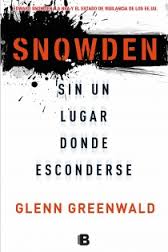Posted: September 22nd, 2014 | Author: Domingo | Filed under: Business Strategy | Tags: Branding | Comments Off on Branding Is not such a Big Deal
As usual, just one single remark and the spark caused the fire… I simply said: “I don’t think brands play such an important role as in the past” and I didn’t have time to explain my argument before an avalanche of negative comments from my dinner colleagues buried my statement. Thus, be this humble post an explanation of my incendiary point of view.
Leer más »
Posted: August 7th, 2014 | Author: Domingo | Filed under: Business Strategy | Tags: Creativity, Innovation, Monitored Risks | 2 Comentarios »
Everyday we read or hear about a different business model, a new turn in the operational processes, a breakthrough in the business marketing strategy… just trying to achieve, increase or extend the business success. However those avalanches of numbers, processes, and strategies sometimes hush up what is really the distinguishing value of a firm: its creativity. Without it a company will never be successful, since creativity is the main business driver.
Creativity must be fed and cared and it usually fades away whenever it is subject to strict rules; flexibility is required: the creative employees do not need a management structure which is always controlling them. They just need space and freedom to create. The corporate culture normally looks for homogeneity, but it may be the worst foe of creativity.
Creativity and innovation must be fostered from the top management; nonetheless, the founding members or managers should not be the last responsible for them, but every single employee should be innovative in their area. A true creative firm is the one which encourages its employees to take important decisions without having to be always asking for authorization.
Is creativity so essential in our business scenario? Taking into account how fast not only companies appear and disappear, but also our society evolves, the key to survive to this changing and challenging maelstrom is creativity and innovation.
Some of the most meaningful business examples of change and adaption to the new needs of our society are the following:
1.- Tiffany & Co. began as a stationer’s.
2.- Nokia was a pulp mill to manufacture paper.
3.- Kutol Products was a soap company from the USA, which manufactured a product to clean wallpaper; however, this business declined and the firm took the decision of transforming the product into a toy which was called Play-Doh –modeling clay-, of which more than 2,000 million of bottles have been sold.
4.- 3M -Minnesota Mining and Manufacturing Company- sold initially the mineral corundum; then it began diversifying its output and it has launched more than 55,000 different products. The firm reinvents itself every decade approximately and around one third of its yearly turnover comes from products which have been in the market for less than five years.
As a conclusion an important item: we have to be aware creativity and innovation are linked to assuming risks and everybody is afraid of risk since human beings are terrified by uncertainty and failure. Assuming risks should not be an option in our times, but a requirement: the best way of guaranteeing the future business success is to take reasonable monitored risks, gauging our strength and resources. It is easier to face the fear to risk when we have done as much as possible to quantify it; whilst being imprecise amplifies that fear, measuring the risk diminishes it. We have to face risk with well-founded data: it is the best way to know how far our firm may go regarding its –hopefully successful- bet.
Posted: July 9th, 2014 | Author: Domingo | Filed under: Realpolitik | Tags: Edward Snowden, Glen Greenwald | 2 Comentarios »
Y yo que pensaba que los malos de la película eran siempre los rusos… Pues hete aquí que mi amigo Juan F. Calero me invita a la presentación en España del libro Snowden, sin un lugar donde esconderse de Glenn Greenwald, el periodista de The Guardian que ayudó a Edward Snowden a sacar a la luz la información relativa a la NSA, y claro, uno que tiene curiosidad, empieza a leerlo y, conforme avanzo en mi lectura, la sorpresa va en aumento y comienzo a hacerme una ligera idea del tinglado de interceptación y robo de telecomunicaciones que tiene montado el amigo Obama, sí, el mismo que viste y calza, el premio Nobel de la Paz de 2009.

Leer más »
Posted: June 11th, 2014 | Author: Domingo | Filed under: Philosophy | Tags: Bushido, Confucio, devotio ibérica, Inazo Nitobe, Mencio, samurai, soldurii, soldurios | 2 Comentarios »
 No sólo para el que le gusten las artes marciales, sino también para todo aquel que se muestre interesado por el país del sol naciente, el libro de Inazo Nitobe es totalmente recomendable. Sin un conocimiento previo del feudalismo y el Bushido, las ideas morales del Japón actual resultan totalmente herméticas.
No sólo para el que le gusten las artes marciales, sino también para todo aquel que se muestre interesado por el país del sol naciente, el libro de Inazo Nitobe es totalmente recomendable. Sin un conocimiento previo del feudalismo y el Bushido, las ideas morales del Japón actual resultan totalmente herméticas.
Leer más »
Posted: May 8th, 2014 | Author: Domingo | Filed under: Book Summaries, History | Tags: El negocio de la libertad, Francisco Umbra, Jesús Cacho, Memorias de la jet | Comments Off on El negocio de la libertad y Memorias de la jet. Cacho y Umbral
Ahora que estamos de homenajes, revisiones, biografías y hagiografías varias del difunto presidente, coño que parece que en esta España cainita y rumbosa hay que morirse para que hablen bien de uno porque hasta entonces eres lo peor que ha parido madre, he tenido la suerte de toparme y leer con fruición estas últimas semanas dos libros que andaban perdidos entre los anaqueles de la biblioteca: El negocio de la libertad de Jesús Cacho, el inventor de elconfidencial.com, y Crónicas de esa guapa gente. Memorias de la jet de Francisco Umbral, el de “Mercedes, yo he venido aquí a hablar de mi libro”. ¡Qué cara se le quedó a la gran hermana, joven por aquel entonces! Quien quiera saber lo que se ha cocido en España desde los 70 hasta el comienzo del siglo XXI, ha de leer ambas obras.
Leer más »

